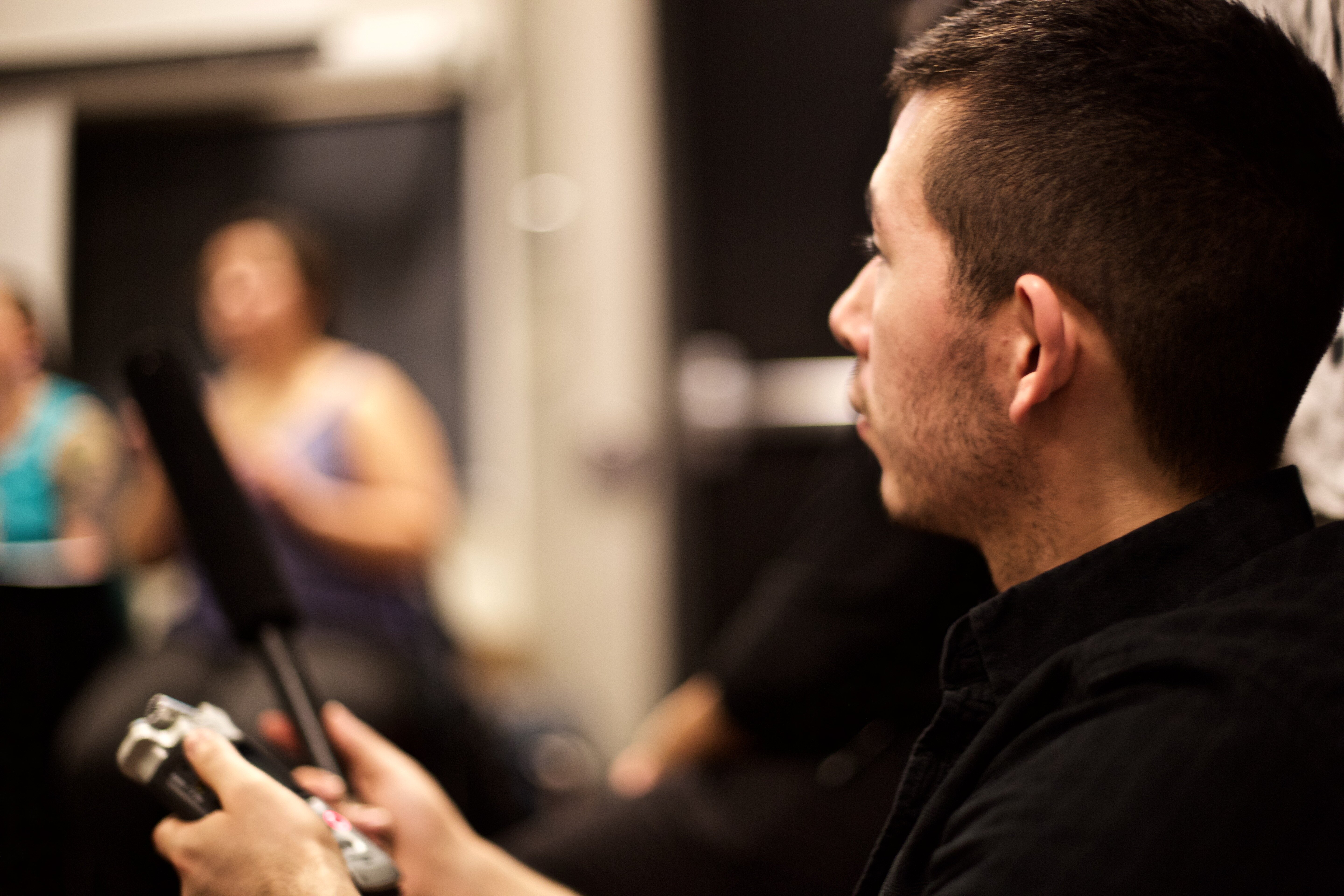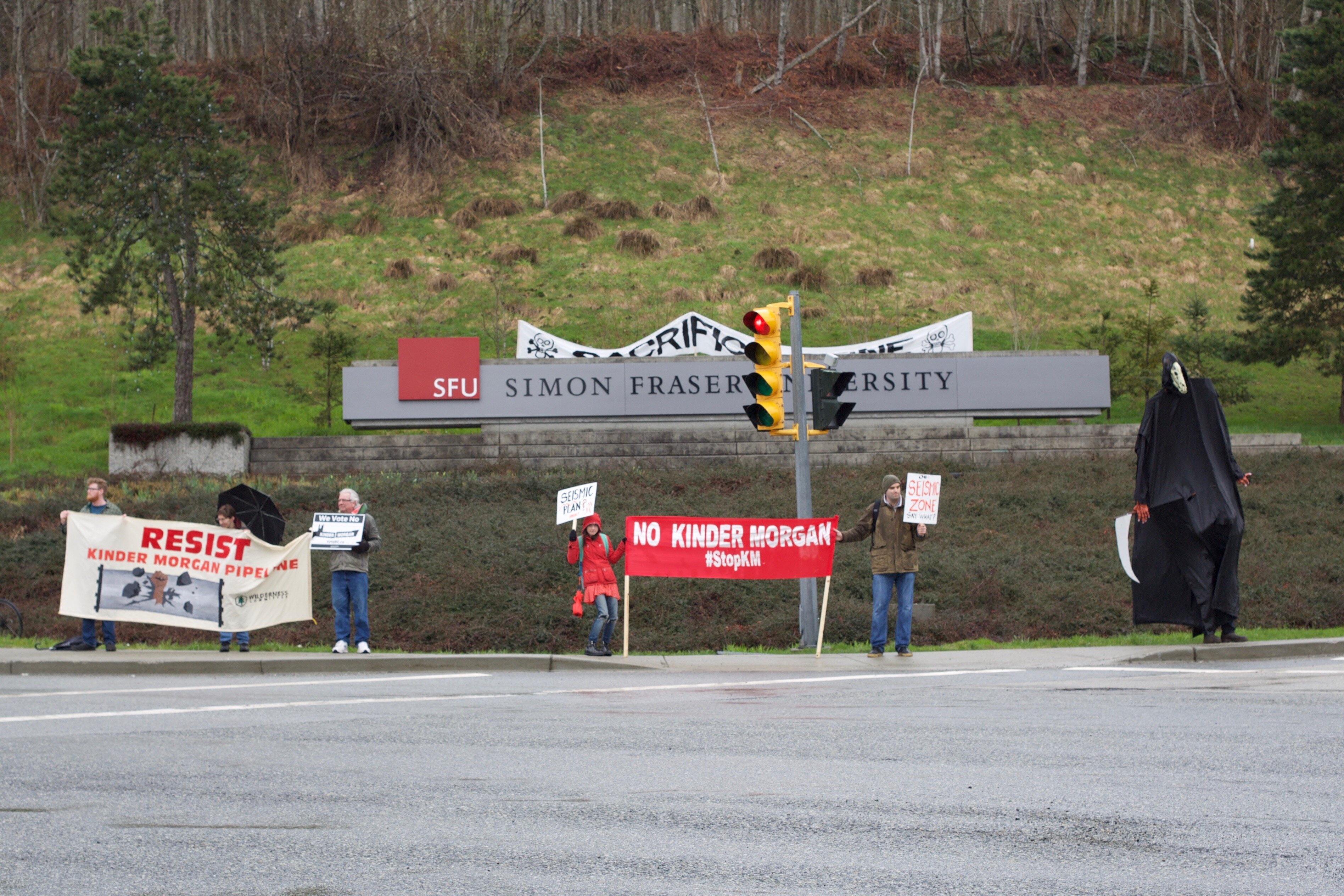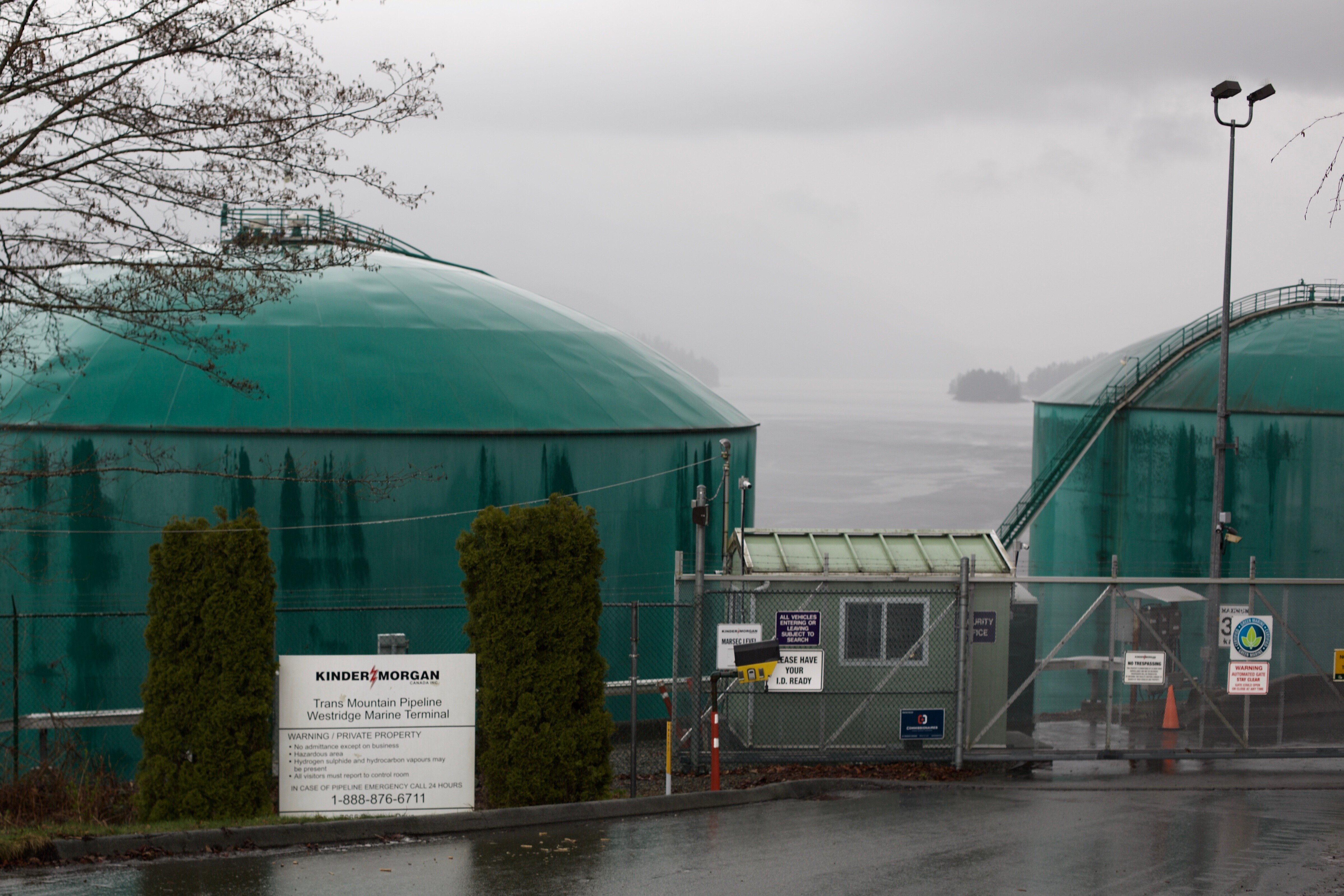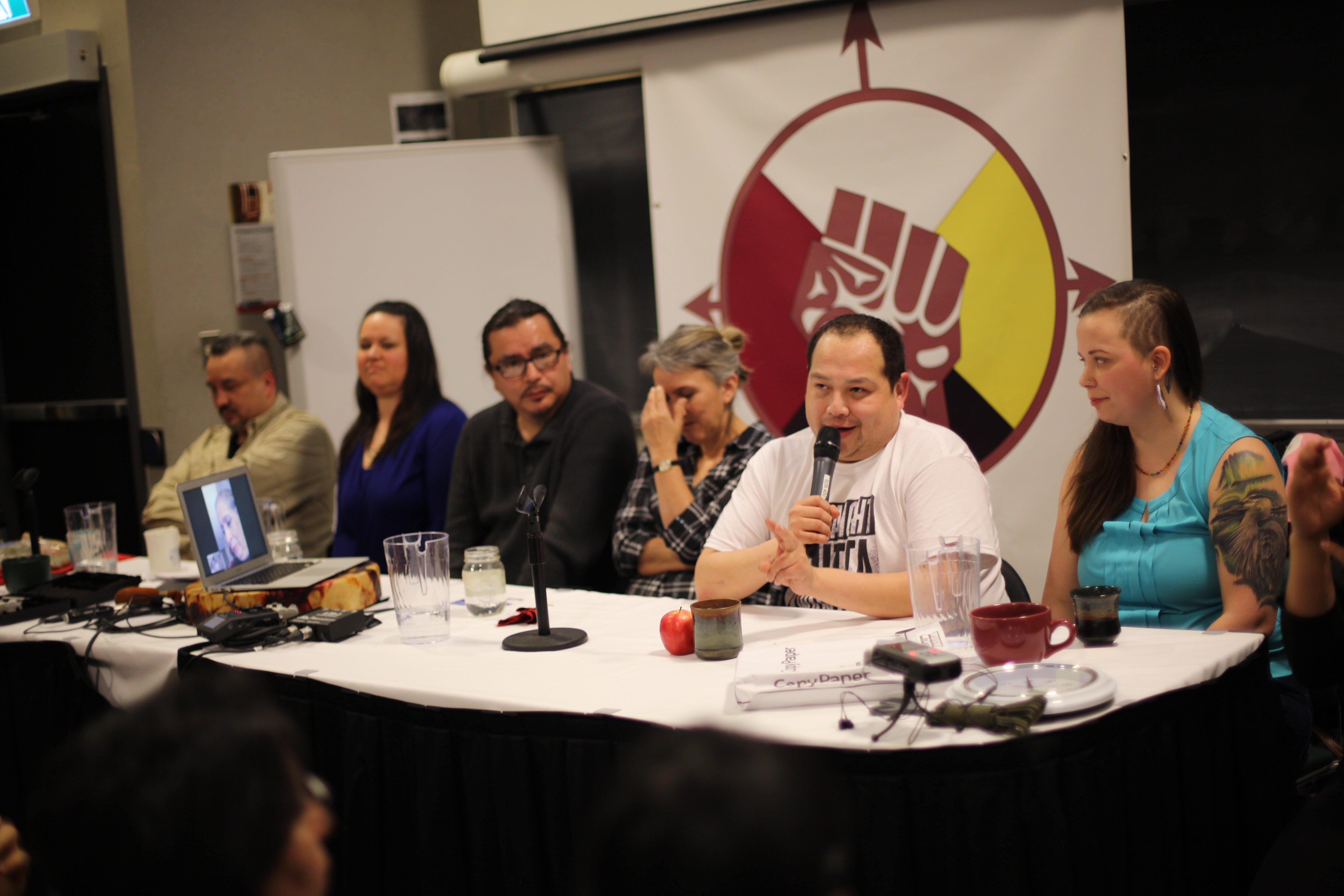What do you know about the Trans Mountain Expansion Project?
With a provincial election coming May 9th, we want to know what British Columbians think about Kinder Morgan’s proposal to twin their oil pipeline to Burnaby. Help us investigate the issues.

Ihave been hearing that it could become the next Standing Rock.
Some First Nations along Kinder Morgan’s Trans Mountain oil pipeline and tanker route are strategizing their efforts to block the project’s expansion. But with approval from both the federal and B.C. governments, and with Kinder Morgan claiming to have the support of 51 First Nations, construction to twin the pipeline from Alberta’s Tar Sands to Burnaby is slated to start this fall. While the review and consultation process that garnered that approval is being fought in the courts, the fight could be finished on the ground.

I’m going to follow what happens and produce stories — and I want your help.
I’ve been covering resource development projects in B.C. for much of the past year, particularly pipeline proposals, that clash with Indigenous land rights and self-governance issues. Leading up to the provincial election on May 9, I am zooming that focus in on Trans Mountain, which will likely be a big election issue for Indigenous and non-Indigenous voters alike. The BC Liberals gave their support for the expansion project in January, while the NDP say the project must be stopped.
As the tension heats up, Discourse Media and Reveal from The Center for Investigative Reporting want to hear from people directly impacted by the project. We are teaming up to host a series of small discussions this week in several communities along the pipeline route. Today we’re in Vancouver, tomorrow we’re heading off to Merritt, Kamloops and some of the surrounding First Nations. This dialogue will fuel our reporting.
The issues: environment, economy, consultation, “corruption?”
The pipeline expansion will span many communities across B.C. and Alberta and has sparked a lot of questions. Over the past couple of weeks, I’ve been gathering these questions people have about the project through this survey and face-to-face interactions. I uncovered a lot of common themes and I’ve categorized them into four main areas of concern: Tanker spill risk and preparedness, the economics of the project, Indigenous consultation and social license and questions about Kinder Morgan’s political donations to the B.C. Liberals ahead of the election.
The truth is, I really don’t know how to answer a lot of the questions behind these concerns. So that’s where I need help. People want to know if B.C. is ready for a major tanker spill in Vancouver’s harbour, and what the damage would be. The City of Vancouver’s Manager of Environmental Services Jennifer Mayberry says in this presentation that the likelihood of a spill may be low, but the consequences would be devastating.

Justin Trudeau promised a “world-class” emergency spill response through the federal government’s $1.5-billion Ocean Protection Plan, and Christy Clark touted it when she announced B.C.’s support for the project. But does that go far enough to ensure a possible spill would be adequately mitigated? Do any measures go far enough to protect the coast? If you know of any expert reports, preferably without an obvious bias, that can help answer these questions, please share them with me.
People are also not sold on the economic benefits of the project. Through survey results we’ve heard that it's hard to get a detailed analysis of why the government approved the project. The economic argument has been in general terms. And according to at least one economist, the international markets for our oil are deteriorating, and the tax revenue and jobs from the project are not what they seem. But I’m not an economist. Have you heard a different story, a similar one? Let’s dig into this together.
Through collaboration, partnership and help from our audience, I want to produce in-depth stories that answer the questions British Columbians have about this project.
When pipelines clash with tribal politics
One last note on Indigenous consultation and resistance. Kinder Morgan says they’ve signed agreements with 51 First Nations along the Trans Mountain pipeline route; however, these agreements and who they are signed with remain confidential. I’ve also heard from some band members that they can’t access copies of the agreements that their elected chief and council signed on their behalf.
From what we’ve learned investigating resource development proposals in Lax kw'alaams, the Gitxsan Nation and on Haida Gwaii, a signed document does not necessarily mean there was informed consent from the community. Internal governance challenges such as the conflict between Indian Act band councils and traditional hereditary systems are often magnified when major projects are proposed and difficult decisions have to be made.

These conflicts have led to some members taking matters into their own hands and setting up occupation camps on their traditional territory in an effort to block construction of projects. I attended a land defenders event and workshop last month in Vancouver, where activists from many of these camps, including Lelu Island, Madii Lii, Unist'ot'en and Standing Rock, shared their experiences and helped network with nations that are going to attempt something similar to stop the Trans Mountain expansion. I will follow this development as well.
If you belong to a First Nation that has signed an agreement with Kinder Morgan and are interested in sharing what the consultative process was like, please get in touch by sending an email to .
I hope to see you on the ground.
